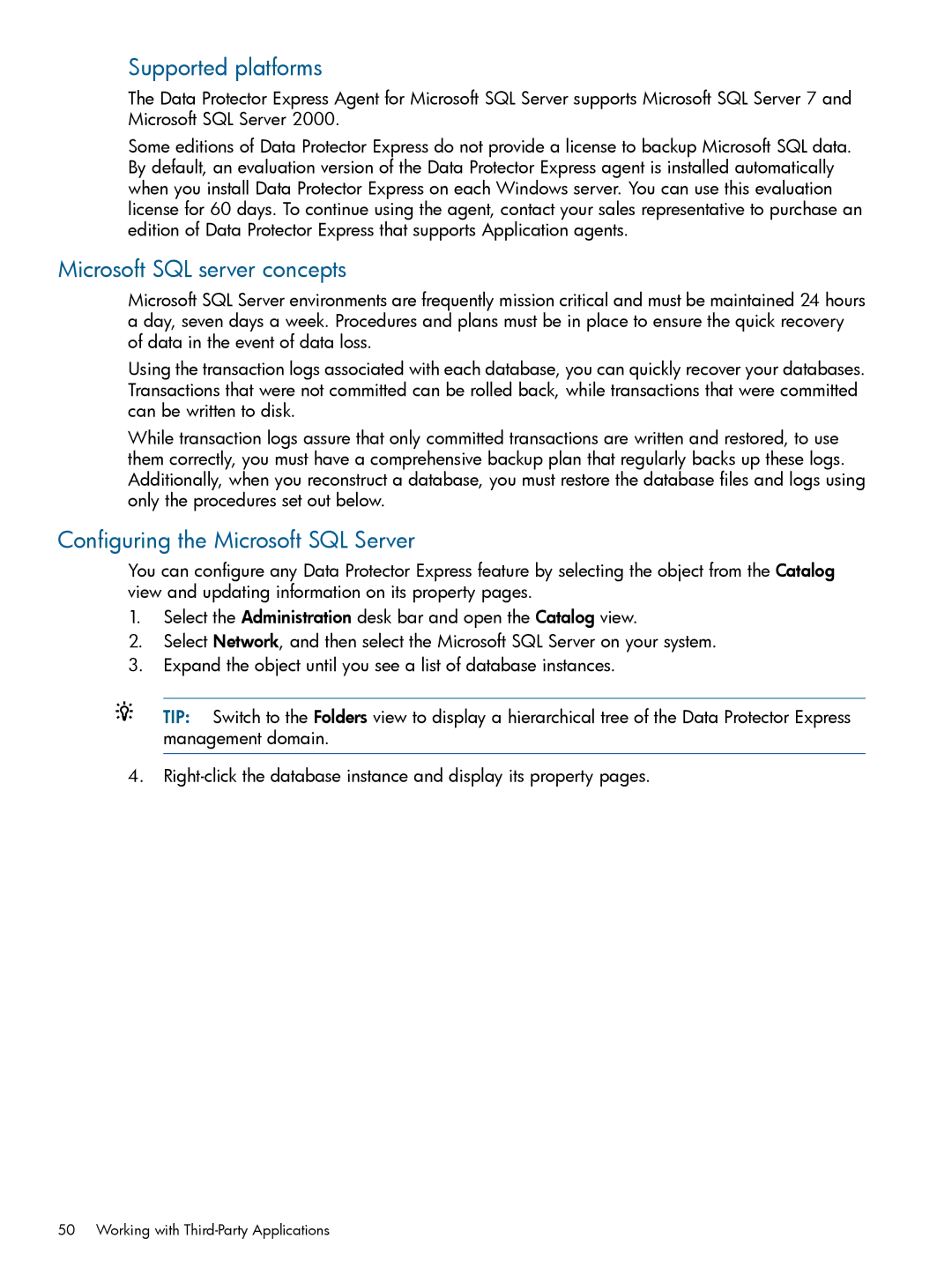Supported platforms
The Data Protector Express Agent for Microsoft SQL Server supports Microsoft SQL Server 7 and Microsoft SQL Server 2000.
Some editions of Data Protector Express do not provide a license to backup Microsoft SQL data. By default, an evaluation version of the Data Protector Express agent is installed automatically when you install Data Protector Express on each Windows server. You can use this evaluation license for 60 days. To continue using the agent, contact your sales representative to purchase an edition of Data Protector Express that supports Application agents.
Microsoft SQL server concepts
Microsoft SQL Server environments are frequently mission critical and must be maintained 24 hours a day, seven days a week. Procedures and plans must be in place to ensure the quick recovery of data in the event of data loss.
Using the transaction logs associated with each database, you can quickly recover your databases. Transactions that were not committed can be rolled back, while transactions that were committed can be written to disk.
While transaction logs assure that only committed transactions are written and restored, to use them correctly, you must have a comprehensive backup plan that regularly backs up these logs. Additionally, when you reconstruct a database, you must restore the database files and logs using only the procedures set out below.
Configuring the Microsoft SQL Server
You can configure any Data Protector Express feature by selecting the object from the Catalog view and updating information on its property pages.
1.Select the Administration desk bar and open the Catalog view.
2.Select Network, and then select the Microsoft SQL Server on your system.
3.Expand the object until you see a list of database instances.
TIP: Switch to the Folders view to display a hierarchical tree of the Data Protector Express management domain.
4.
50 Working with
